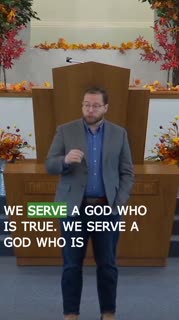In today's gathering, we explored the profound teachings found in the book of Titus, focusing on the contrast between the values of the world and the values of Christianity. The island of Crete, known for its deceptive culture and birthplace of Greek mythology, serves as the backdrop for Paul's letter to Titus. Paul emphasizes the importance of honesty and integrity, highlighting that our faith in Christ should lead to a transformation in our lives. This transformation is not just about personal salvation but also about how we interact with others, reflecting the truth and faithfulness of God.
Paul's message to Titus is clear: the God of Christianity is fundamentally different from the gods of the world, like Zeus. Our God is one who cannot lie, and this truth should be the foundation of our lives. The faith we hold should manifest in our actions, making honesty a hallmark of our character. This is counter-cultural, especially in a world that often values deception and self-interest.
Furthermore, Paul outlines the qualifications for church leaders, emphasizing the need for integrity, self-control, and a heart for people. Leaders should be blameless, not controlled by money or other vices, and should have a genuine love for others. This love is essential because the work of the church is fundamentally about people. Leaders are called to be sober-minded, just, holy, and temperate, understanding the weight of their responsibility.
Paul also stresses the importance of sound doctrine and the need to confront false teachings. The church must be vigilant against influences that subvert the truth, and leaders must be willing to rebuke falsehoods clearly and boldly. However, the goal of such rebuke is always restoration, aiming to make others sound in their faith.
In conclusion, the teachings in Titus remind us of the importance of living a life of honesty and integrity, grounded in the truth of God's word. As Christians, we are called to invest in others, ensuring that the faith we hold is passed on to future generations.
Key Takeaways
- 1. BoHoIJx9A&t=2120s'>[35:20]
2. Qualifications for Church Leadership: Church leaders are called to be blameless, self-controlled, and have a genuine love for people. Their role is not just administrative but deeply relational, focusing on the well-being of the congregation. This requires a heart for people and a commitment to living a life of integrity.
3. The Importance of Sound Doctrine: The church must be vigilant against false teachings and influences that subvert the truth. Leaders are called to confront these falsehoods clearly and boldly, but always with the goal of restoration, aiming to make others sound in their faith.
4. The Role of Spiritual Relationships: God has placed us in a community of believers for a reason. We need spiritual relationships where we can share our faith, seek guidance, and be held accountable. These relationships are essential for our growth and the continuation of the faith.
5. The Call to Honesty and Integrity: As Christians, we are called to live a life of honesty and integrity, grounded in the truth of God's word. This requires courage and boldness to stand for what is right, even when it is counter-cultural. Our lives should be a testament to the truth and faithfulness of God.
** [35:20]
Youtube Chapters




